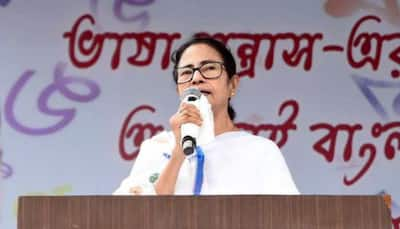Top Stories
Mamata Banerjee Challenges ECI’s SIR, Calls It Backdoor NRC Move

West Bengal Chief Minister Mamata Banerjee has voiced strong opposition to the Election Commission of India (ECI) regarding its Special Intensive Revision (SIR) of electoral rolls, which she claims is a covert attempt to implement the National Register of Citizens (NRC) in the state. Banerjee’s accusations come in the wake of the ECI’s release of data indicating that over 7.24 crore electors participated in the voter list revision process in Bihar, with a significant number of voters expected to be excluded from the new electoral rolls.
The SIR process concluded its first phase recently, revealing that out of a total of 7.89 crore electors, approximately 65 lakh voters will not appear in the upcoming draft electoral rolls. This initiative, launched just months before the crucial assembly elections in Bihar, aimed to ensure that “No Elector Left Behind,” focusing primarily on engaging first-time voters, urban residents, migrant workers, and vulnerable demographics, including the elderly and individuals with disabilities.
Banerjee has criticized the ECI’s actions as “selective targeting,” suggesting that the move is part of a larger strategy to apply the NRC framework in West Bengal following a similar attempt in Bihar. She stated, “After Bihar, and now you want to do the same in Bengal?” In response, she has announced that the Trinamool Congress (TMC) will initiate a “Gherao movement” to protest against what she terms an unfair electoral process, declaring, “We will not let this new law stand. We will fight, we will change it, we will not accept it.”
Understanding the NRC and Its Implications
The National Register of Citizens (NRC) is intended to document all legal citizens of India, distinguishing them from illegal immigrants. The original register was prepared in 1951, and the only significant update has occurred in Assam. The TMC, under Banerjee’s leadership, has consistently opposed the NRC, fearing that such measures could lead to the disenfranchisement of many citizens, especially in a state sharing a lengthy border with Bangladesh.
The India-Bangladesh border spans 2,216 kilometres, with approximately 450 kilometres remaining unfenced. This scenario has led to a significant influx of undocumented migrants, a situation that the West Bengal government has been accused of handling leniently. Although official estimates of illegal migrants are unavailable, the Indian government has begun deportation efforts in response to growing concerns.
Political Reactions and Future Developments
The BJP, Banerjee’s primary political rival, has dismissed her criticisms as mere “drama” aimed at obstructing the SIR process in Bihar. Suvendu Adhikari, a prominent BJP leader, has spoken out against Banerjee’s claims, asserting that they are unfounded and politically motivated.
As the situation unfolds, the implications of the SIR and its potential connection to the NRC remain a critical topic of discussion in West Bengal’s political landscape. The TMC’s mobilization against the ECI’s actions indicates a significant escalation in tensions between state leadership and federal electoral authorities, setting the stage for a contentious political climate in the lead-up to the elections.
With the ECI’s voter list revision process underway, the focus will remain on how these developments affect voter participation and the broader implications for citizenship in India.
-

 World5 months ago
World5 months agoSBI Announces QIP Floor Price at ₹811.05 Per Share
-

 Lifestyle5 months ago
Lifestyle5 months agoCept Unveils ₹3.1 Crore Urban Mobility Plan for Sustainable Growth
-

 Science4 months ago
Science4 months agoNew Blood Group Discovered in South Indian Woman at Rotary Centre
-

 World5 months ago
World5 months agoTorrential Rains Cause Flash Flooding in New York and New Jersey
-

 Top Stories5 months ago
Top Stories5 months agoKonkani Cultural Organisation to Host Pearl Jubilee in Abu Dhabi
-

 Sports4 months ago
Sports4 months agoBroad Advocates for Bowling Change Ahead of Final Test Against India
-

 Science5 months ago
Science5 months agoNothing Headphone 1 Review: A Bold Contender in Audio Design
-

 Top Stories5 months ago
Top Stories5 months agoAir India Crash Investigation Highlights Boeing Fuel Switch Concerns
-

 Business5 months ago
Business5 months agoIndian Stock Market Rebounds: Sensex and Nifty Rise After Four-Day Decline
-

 Sports4 months ago
Sports4 months agoCristian Totti Retires at 19: Pressure of Fame Takes Toll
-

 Politics5 months ago
Politics5 months agoAbandoned Doberman Finds New Home After Journey to Prague
-

 Top Stories5 months ago
Top Stories5 months agoPatna Bank Manager Abhishek Varun Found Dead in Well









